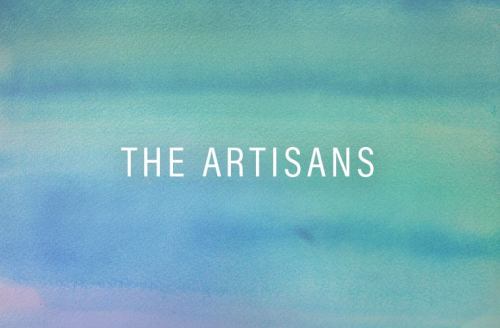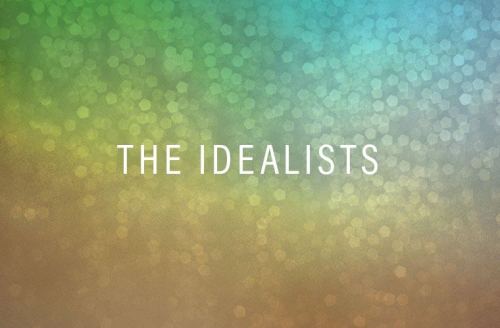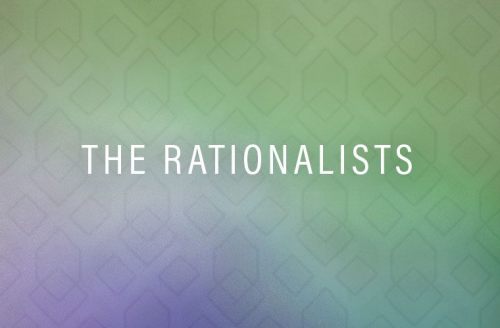The most common stereotype for every Myers-Briggs personality type, debunked
Many Myers-Briggs personality types come with widely held common steretypes. Here, those assumptions are debunked and explained—finally.

Sometimes it seems like each Myers-Briggs personality type has its own less-than-flattering reputation—a fatal flaw or an extremist characterization. Don’t take these depictions too seriously, though. Because no, ENTJs are not ruthless dictators out for blood, and ISFJs aren’t timid wallflowers who will never develop a backbone. Stereotypes are dangerous to believe in all areas of life because they require you to paint everyone and everything in a monochromatic way when the real situation is much more textured and nuanced.
In fact, by actually analyzing the common stereotypes of MBTI personality types, it becomes clear just how wrong so many of them are for so many people. Check it out below. (Don’t know what your MBTI is? Read this first!)
Below, find the common stereotypes of Myers-Briggs personality types—totally debunked.

ISFJ stereotype: They’re timid
ISFJs are often shy and don’t stand up for themselves enough; they are giving spirits, and tend to put others first. But they can be fierce, too. If you mess with an ISFJ’s values or any of their loved ones, they’ll absolutely put you in your place—or cut you out of their life completely, depending on the situation.
ESFJ stereotype: They’re overly emotional
Expressive and known wear their hearts on their sleeves, ESFJs are not generally emotional in a way that affects their overall functioning. They are often quick to bounce back from heartbreak, and are generally hard workers who don’t let emotions stop them. They thrive in their careers, and often take on secondary leadership roles outside of their main work.
ISTJ stereotype: They’re sticks in the mud
ISTJs are typically portrayed as curmudgeons, but that’s only because they are super-responsible when the job’s gotta get done. They tend to not be able to relax until all their work is finished. But when they do let their hair down, they are usually among the most playful people at the party. They love their friends and have huge (hidden) hearts.
ESTJ stereotype: They’re all work, no play
ESTJs are not “all work, no play,” but rather more “work hard, play hard.” They tend to have many interests and hobbies outside work and are social, with a long-standing group of core friends. Many ESTJs also love to travel and experience new adventures.

ESFP stereotype: They’re never serious
They love to have fun, but they can also be surprisingly serious when they put their minds to it. ESFPs can get entirely engrossed in a work project, snap into action when someone is injured or hurting, and provide some of the finest heart-to-hearts around. Don’t underestimate them; ESFPs know when to step up, and when to relax.
ISFP stereotype: They’re flighty
ISFPs have an impulsive tendency sometimes, but they generally have big hearts and want to have deep relationships with family and friends. They’re around when it matters—at graduations, celebrations for promotions, birthdays—and during the little moments upon which strong bonds are built.
ESTP stereotype: They’re con artists
ESTPs are charming and confident, which can make some think they’re fooling you. In reality, they’re just incredibly straightforward and want to make sure they’re doing right by people. If you ask an ESTP where you stand with them, they’ll tell you. If they’re feeling something, they’ll verbalize it. If they want something to change in your relationship, they’ll lay it out. They’d rather be honest—even if they could very well sell milk to a milkman.
ISTP stereotype: They can’t feel
ISTPs certainly feel and can develop strong emotions for romantic partners and friends. They’re neither mechanical nor robotic, and show their emotions through ongoing efforts to support and get to know friends. That said, they may have trouble identifying exactly what they’re feeling, which is what leads to the “unfeeling” stereotype.

ENFP stereotype: They’re wildly moody
ENFPs appear happy, like, all the time. They can often pretend things are okay for a long time, even when they’re definitely, totally not. This can lead people to classify ENFPs for having wild mood swings, despite that not being the case. They typically know what they feel, and have deep, lingering emotions; they simply need to communicate them with the people who matter, and ask for help when they need it.
INFP stereotype: They’re mushy pushovers
Deep down, yes, INFPs are total romantics. But they also learn from their mistakes, and, in time, don’t allow themselves to be taken advantage of. By adulthood, they’re often skilled at filtering in positive influences and healthy romantic prospects to their lives.
ENFJ stereotype: They’re total Care Bears
ENFJs care about their friends, family, and romantic partners a lot—but they have their limits. They typically can’t deal with situations where they feel something is wrong on a gut-instinct level, distancing themselves from those who have disrespected them, betrayed them, or don’t seem to share their values. While the ENFJ embrace can be warm and friendly, the blow off can also turn cold as ice.
INFJ stereotype: They’re reclusive
INFJs tend to need a lot of alone time, but they also thrive on friendship. INFJs tend to invest deeply in a core group of friends, and have a pretty substantial group of acquaintances. Having extraverted feeling as their second cognitive function, they’re inherently comfortable with people.

INTJ stereotype: They’re cold
They’re stereotypically icy and emotionless, but in reality—especially with more mature INTJs—this type has very intense feelings and intricate value systems. Some INTJs even choose their work or hobbies based on the emotions that power them deep down, like, for instance, the loss of a loved leading to becoming a cancer researcher.
INTP stereotype: They’re scattered
INTPs get the “scattered, philosophical scientist” stereotype. And while they often get dates wrong and show up 10 minutes late to group gatherings, it’s not because they’re disorganized. They are usually just saving all their organizational and structural energy for their work projects that generally engross their attention. Because of this difficulty detaching, INTPs can seem a bit distant.
ENTP stereotype: They can’t settle down
ENTPs want to settle down, and they usually do once they understand what it takes to keep a relationship going through the less-than-fun times. Although they’re typically known as lovestruck flirts who never commit to one partner, they actually have a more challenging time committing to a single career path with their many intellectual interests.
ENTJ stereotype: They’re ruthless
ENTJs don’t mix work and pleasure very often, so they can keep a clear head at the office. But they love big. They’re never ruthless with friends, family, or romantic partners, and would prefer to encourage instead of criticize. They are often the first one to offer assistance in case of a crisis, will always let loved ones bounce ideas off them, and know how to maintain a relationship through thick and thin. Quality time is usually their love language, and they make that time for those they care about.
Want more Myers-Briggs intel? Here’s what motivates you according to your personality type, and here’s what may lead you to burnout.
Sign Up for Our Daily Newsletter
Get all the latest in wellness, trends, food, fitness, beauty, and more delivered right to your inbox.
Got it, you've been added to our email list.










